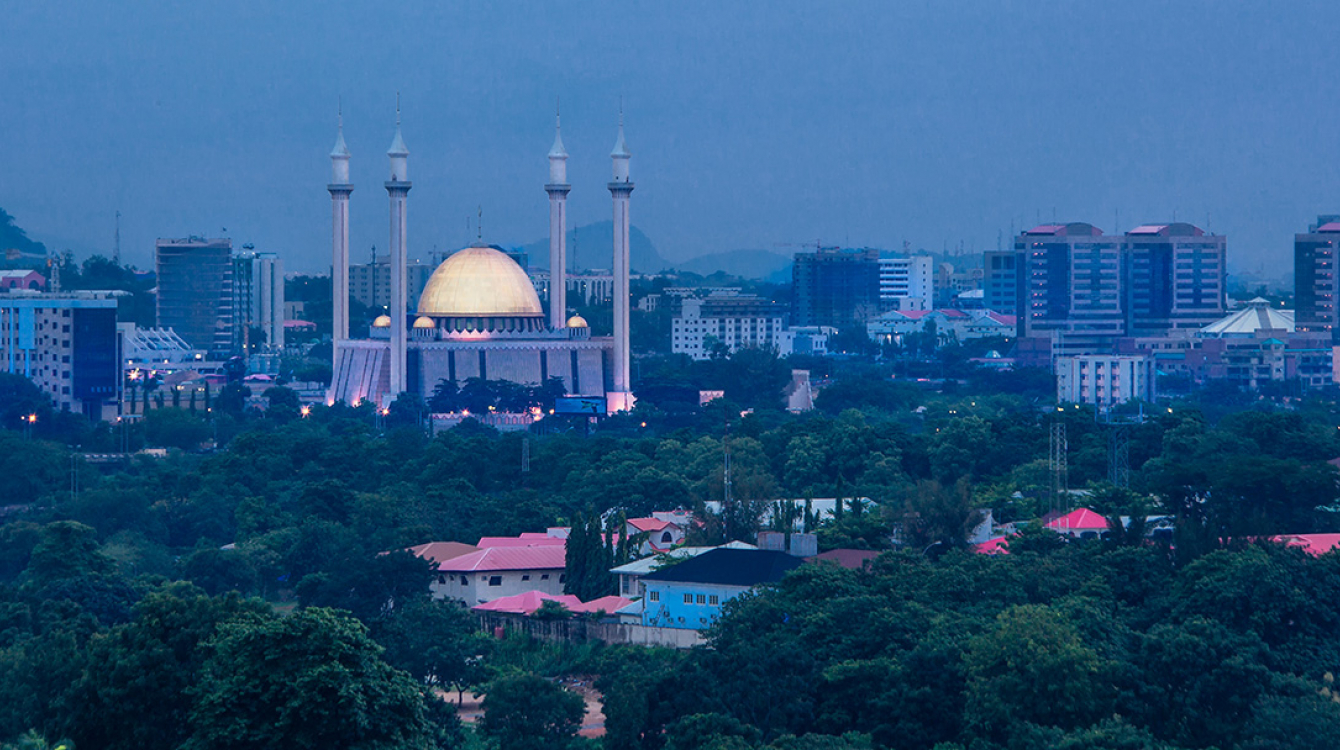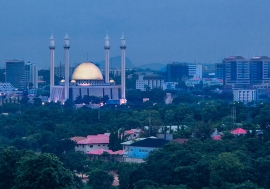The United Nations Global Compact, the world’s largest corporate sustainability initiative, today launched its Africa Regional Hub in Abuja, Nigeria.
The Africa Regional Hub will mobilize, accelerate and scale-up the impact of responsible business across Africa and drive forward the Africa Strategy 2021-2023 of the UN Global Compact.
The Hub was launched by Sanda Ojiambo, Assistant Secretary-General and CEO of the UN Global Compact, UN Global Compact Board member Flora Mutahi, Founder & CEO, Melvin Marsh International Limited, Matthias Schmale, UN Resident Coordinator for Nigeria, Prince Orelope-Adefulire, Special Assistant to the President of Nigeria on the SDGs and Olajobi Makinwa, Chief, Intergovernmental Affairs and Africa at the UN Global Compact. Also present were members of the diplomatic corps and the UN Country Team for Nigeria.
With 1.3 billion people and a combined GDP of $3.5 trillion dollars, Africa is the world’s biggest growth market. African businesses are primed to play a pivotal role in the corporate sustainability movement.
The UN Global Compact’s Africa Strategy 2021-2023 provides a roadmap to galvanize large and small businesses across Africa to uphold the Ten Principles. The UN Global Compact’s principles-based approach means that businesses operate in ways that, at a minimum, meet fundamental responsibilities in the areas of human rights, labour, environment and anti-corruption.
Working through the Africa Hub, the UN Global Compact has three objectives by which to accelerate and scale up its sustainability impact in Africa:
- First, to grow its impact by focusing on the engagement and recruitment of the Top 100 companies across the continent.
- Second, to drive inclusive impact by engaging broadly across Africa, regardless of sector, geography, or company size.
- Third, to leverage associations, supply chains and capital by engaging major financial institutions, multinational and pan-African corporations, and key associations across the continent.
During the launch event, the UN Global Compact also announced a call to action for 100 African companies who are current signatories of the Women’s Empowerment Principles (WEPs) to partner with the UN Global Compact to advance gender equality. This will be achieved through mobilizing their supply chains. The call to action asks each of the 100 companies to persuade 10 of their suppliers to also sign the WEPs. “The WEPs 100” will be at the forefront of accelerating corporate sustainability and economic recovery and growth in Africa. Gender-responsive procurement practices will be part of this initiative.
The Africa Regional Hub will collaborate closely with the UN Global Compact’s headquarters in New York, as well as the Local Networks in Africa, to support regional programme development, setting of strategic growth targets and the management of priority relationships with the UN.
It will also provide support on the localization and development of programmes and regional policy positions to ensure that regional engagements are in line with national and regional priorities, such as the 2030 Agenda for Sustainable Development and the African Union’s Agenda 2063.
“With less than 10 years to go, an ambitious global effort is underway to deliver the 2030 Agenda for Sustainable Development by mobilizing governments, civil society, businesses and people everywhere to make the Global Goals their own. The private sector has a critical role to play by aligning its expertise and capital with the United Nations’ vision for achieving the Sustainable Development Goals. The UN Global Compact, through its new Africa Strategy and Africa Hub, will work with accountable companies and ecosystems to enable the needed change,” said Sanda Ojiambo, Assistant Secretary-General and CEO of the UN Global Compact.
More than 1,000 companies and non-business private sector stakeholders already participate in the UN Global Compact across 45 countries in Africa.
The Africa Regional Hub launch comes ahead of the Climate Change Conference of Parties (COP 27) in Africa in November 2022, and as countries on the continent begin implementing the African Union’s Agenda 2063 - a blueprint for transforming the continent into a global powerhouse of the future.









